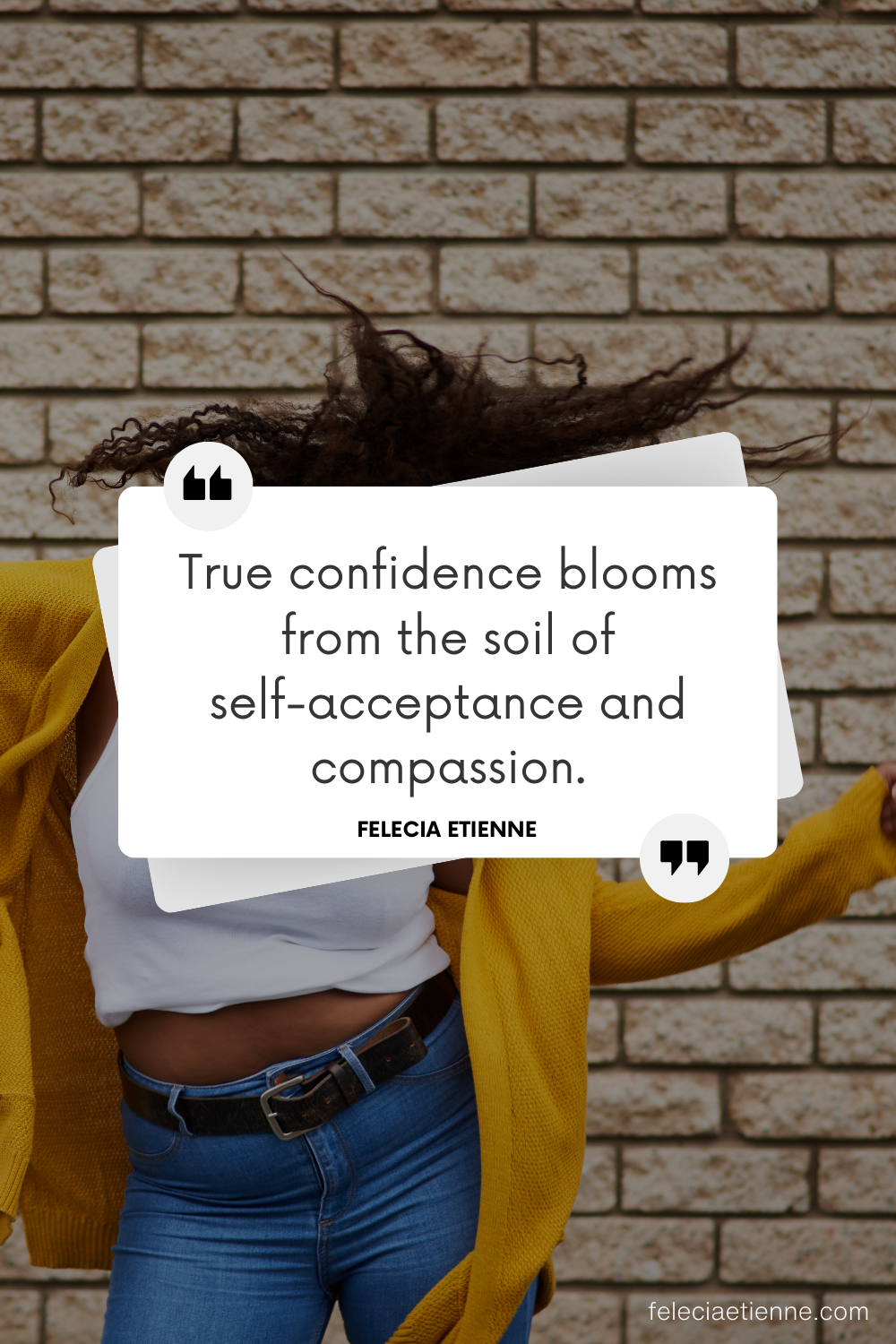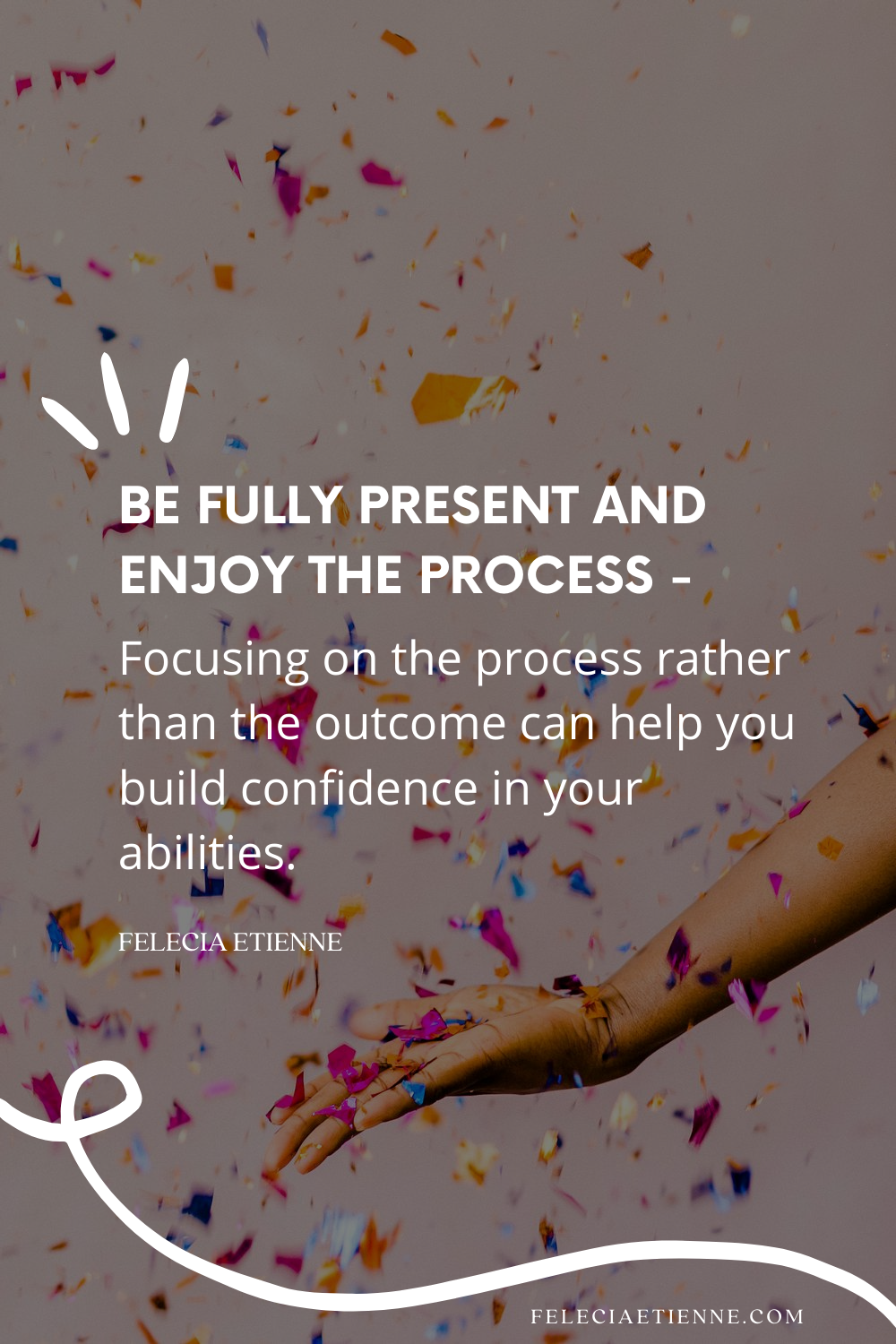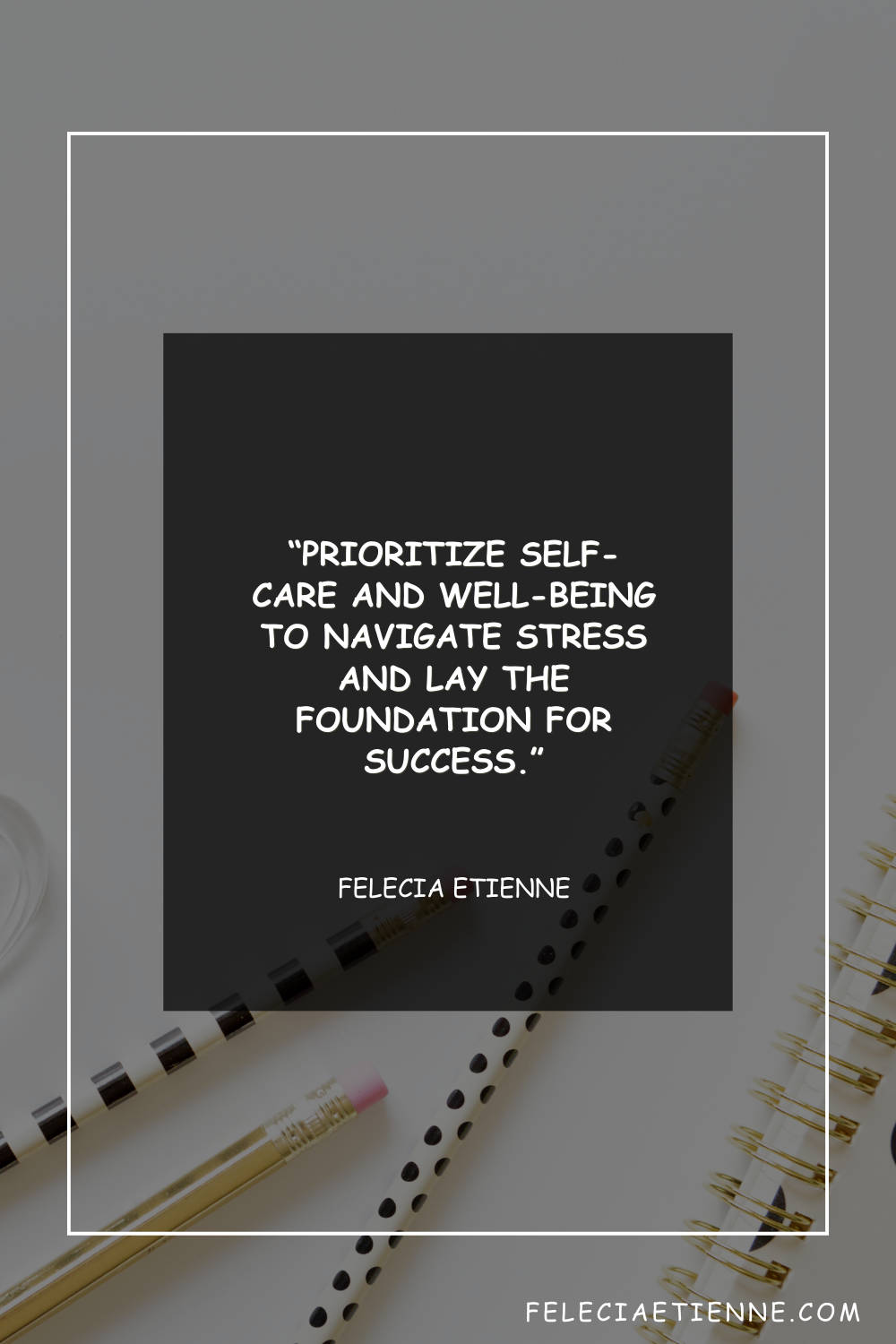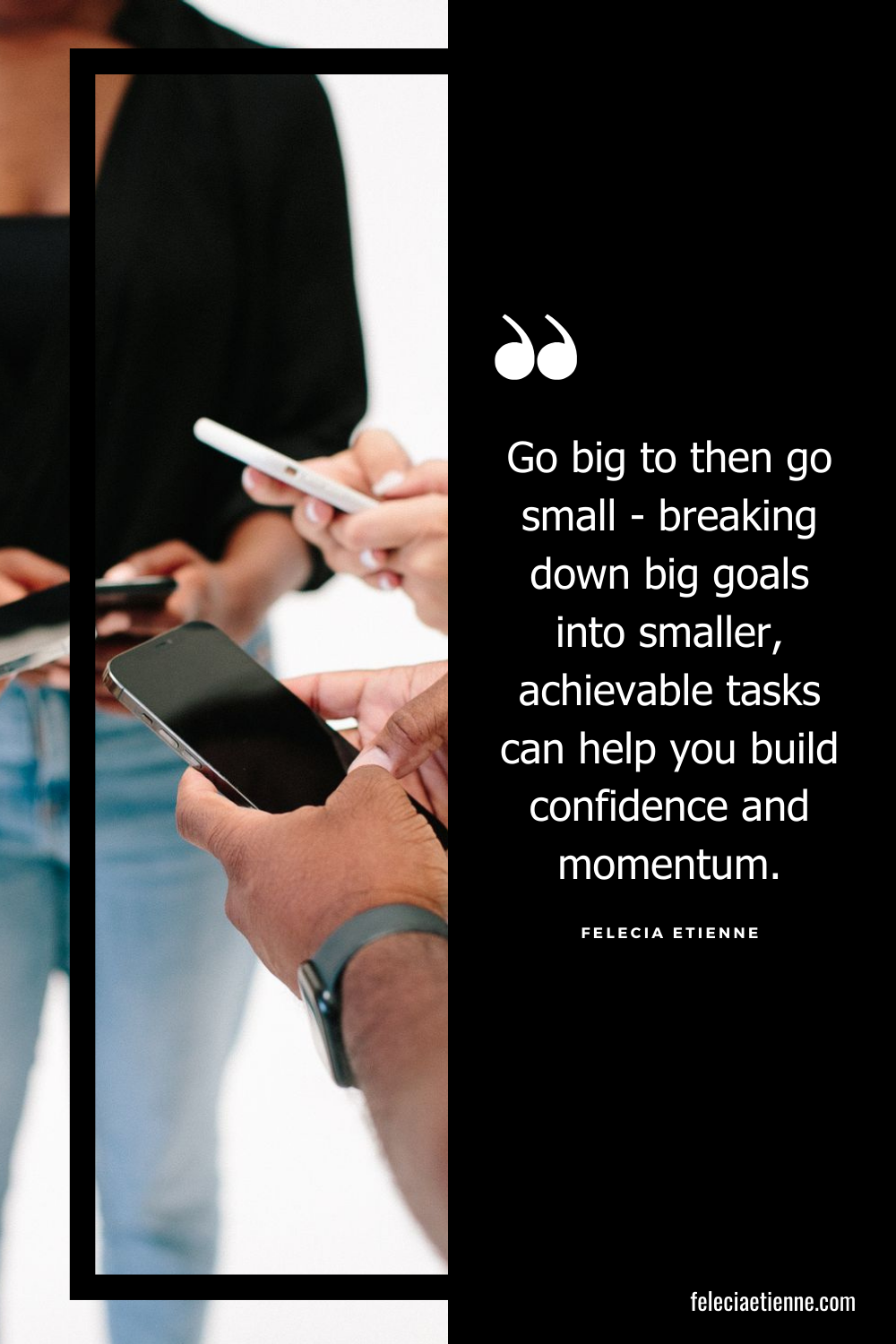Building Unshakeable Confidence: 19 Strategies for Cultivating Self-Confidence
Building Unshakeable Confidence: 19 Strategies for Cultivating Self-Confidence
Confidence is a powerful trait that can open doors, fuel success, and bring about fulfillment in life. It allows us to tackle challenges head-on, take risks without fear or doubt, and believe in our abilities.
However, for many of you, confidence might seem elusive and unattainable. You might struggle with self-doubt, compare yourself to others, or engage in negative self-talk that hinders your ability to embrace your potential fully.
The good news is that intentional strategies and mindset shifts can cultivate and strengthen confidence.
Ready to dive deep into what makes confidence tick? In this blog post, we'll unpack the power of rock-solid confidence, why it matters in every part of life, and some real, doable tips for building it from the inside out. Get set for a transformative journey to becoming a more confident you!
Understanding Self-Confidence
Self-confidence is about trusting your skills, abilities, and worthiness to nail it in different situations or tasks. It's not quite the same as self-esteem, which is more about how much you value yourself. Self-confidence is more about how you feel about your chances in specific scenarios, and it can change depending on what you're facing. To boost your self-confidence, keep a positive attitude, welcome challenges with open arms, and don't forget to acknowledge what you're good at.
The Foundation of Confidence is Self-Worth
Self-worth is all about believing that we're valuable and deserve love and respect, no matter what we've achieved or messed up. It is the foundation upon which confidence can be built. When we have a strong sense of self-worth, we are less likely to seek validation from external sources and more likely to trust in our own abilities. Therefore, building a healthy sense of self-worth is essential to develop unshakeable confidence.
The Power of Unshakeable Confidence
Unshakeable confidence isn't about being fearless or doubt-free; it empowers you to push forward despite those feelings, allowing you to face challenges with courage and resilience. It enables you to take risks, venture into new territories, and make bold decisions without being paralyzed by self-doubt or the fear of failure. With unshakeable confidence, you're equipped to tackle challenges, bounce back from setbacks, and chase your goals with determination, secure in the knowledge that you have what it takes to overcome them. When you're confident, you give off positive vibes that can inspire and motivate the people around you.
The Impact of Low Confidence
Low self-confidence can deeply affect various aspects of your life, from your relationships and career aspirations to your overall sense of fulfillment and well-being. When you're not confident about yourself, you might hold back from taking risks, question what you're capable of, and skip out on chances to grow and succeed. Additionally, low confidence can lead to feelings of anxiety, self-doubt, and imposter syndrome, further undermining your belief in yourself and your capacity to grow. Low self-confidence can deeply impact various aspects of your life, from your relationships and career aspirations to your overall sense of fulfillment and well-being. When you lack self-confidence, you might hesitate to take risks, doubt your abilities, and shy away from opportunities for success and growth. Additionally, low confidence can contribute to feelings of anxiety, self-doubt, and imposter syndrome, further undermining your belief in yourself and your capacity to succeed.
The 18 Confidence Lies that Block Your Confidence:
There are many common misconceptions and lies that may prevent us from developing unshakeable confidence. These include:
"Confidence is something you either have or don't have." This belief suggests that confidence is a fixed trait that we are born with rather than something that can be developed and strengthened over time.
"Confidence means being perfect.” The pursuit of perfection can kill confidence, as it sets unrealistic expectations and can lead to self-criticism and doubt.
"Confidence means never feeling afraid." The truth is that even the most confident individuals experience fear at times. The key is learning how to manage and overcome those fears rather than letting them hold us back.
"I'm not good enough." This is a common lie that can hold you back from reaching your full potential. Remember, perfection is an illusion, and nobody is perfect. Embrace your imperfections and focus on continuously improving instead of striving for unattainable perfection.
"I don't have what it takes." Negative self-talk can be a major roadblock in building confidence. Instead of focusing on your perceived limitations, shift your mindset to focus on your strengths and capabilities.
"Others' opinions define your worth." Relying on external validation for our self-worth can be detrimental to our confidence, as we may constantly seek approval from others rather than trusting in ourselves.
"I must be good at everything to be confident." This belief places unrealistic pressure on us to excel in all areas of life rather than recognizing and celebrating our unique strengths and talents.
"Confidence means always being happy." It is important to understand that everyone experiences ups and downs in life, and it is okay to have bad days. True confidence involves acknowledging and accepting all of our emotions.
"Confidence comes from external factors." While external validation or accomplishments may temporarily boost our confidence, true confidence comes from within and does not rely on outside influences.
"Confidence means never making mistakes." This belief can hold us back from taking risks and trying new things. True confidence involves learning from our mistakes and using them as opportunities for growth.
"You need the approval of others to be confident." Seeking approval from others can lead to people-pleasing behavior, which can undermine our confidence and sense of self-worth.
"Confidence is a destination." Confidence is a journey, not a destination. It takes continual effort and practice to maintain and strengthen our confidence levels.
"You need to have it all figured out to be confident." It is important to recognize that no one has everything figured out, and it is okay to embrace uncertainty and learn as we go.
"Confidence means being extroverted and outgoing." While some people may naturally exude confidence in social situations, introverts can also possess strong confidence through their quiet strength and self-assuredness.
"Confidence is selfish." This belief suggests that focusing on ourselves and our own needs is a negative trait when, in reality, it is important to prioritize self-care and self-love in order to cultivate confidence.
"Confidence means always being assertive." While assertiveness can be an important aspect of confidence, it is also important to know when and how to be empathetic and listen to others.
"Confidence means never feeling vulnerable.” Vulnerability can actually build stronger connections with others and strengthen our confidence as we learn to embrace our authentic selves.
"You have to be born with confidence." Again, this belief reinforces the idea that confidence is a fixed trait rather than something that can be cultivated and developed through mindset and actions.
Cultivating Unshakeable Confidence: 18 Science-Backed Strategies:
While there is no one-size-fits-all solution for building confidence, there are many proven strategies that can help individuals develop unshakeable confidence. Some of these include:
1. Practice Assertiveness:
“Communicate confidently and respectfully - assertiveness is key to honoring your needs and boundaries.”
Assertive individuals exude confidence through eye contact, posture, and body language. They express thoughts and beliefs sincerely, fostering open communication. Assertiveness involves advocating for oneself while respecting others, managing stress, problem-solving, and remaining composed in interactions. By practicing assertiveness and self-expression, individuals can increase their confidence in communicating their needs and boundaries effectively. Practice assertive communication techniques such as using "I" statements, expressing yourself clearly and directly, and advocating for your needs assertively but non-aggressively. Set boundaries in your relationships and interactions with others to protect your emotional well-being and honor your values and priorities. Ask yourself: In what areas of my life do I struggle to assert myself confidently? What steps can I take to practice assertiveness and set healthy boundaries?
2. Practice Positive Visualization
“Let your vision shape your reality. Visualize success and watch your dreams materialize.”
Imagine yourself succeeding in challenging situations to build your confidence and reduce anxiety. Visualize yourself confidently performing a task, giving a presentation, or handling a difficult conversation. Focus on the feeling of success and see yourself overcoming obstacles with ease. This approach can help you face real-life situations with confidence and positivity. Use visualization techniques to challenge negative emotions and thoughts, replacing them with empowering beliefs. Involve all your senses in the visualization process, including sights, sounds, and emotions, to make the experience vivid and compelling. Ask yourself: What goals or challenges would I like to visualize myself succeeding in? How can I incorporate positive visualization into my daily routine to boost my confidence and motivation?
3. Embrace Failure as a Learning Opportunity
“View challenges as chances to learn and grow, not as shortcomings - embracing this perspective can aid in overcoming obstacles and fostering resilience.”
The fear of failure can significantly undermine your confidence. Instead of interpreting failure as a reflection of your self-worth, you can view it as a chance to learn and evolve. Many individuals perceive failure as a signal of weakness or inadequacy, impacting their self-esteem negatively. Nonetheless, failure is an inevitable aspect of life, and your response to it is crucial. Embracing failure as a learning experience can foster resilience, courage, and confidence in overcoming obstacles. Rather than dwelling on errors or setbacks, reflect on the lessons they offer and how they can guide your future improvement. It's important to acknowledge that even successful individuals have faced numerous failures before reaching their goals. Consider: What recent setbacks have you encountered? How can you leverage these experiences for personal growth and confidence?
RELATED ARTICLE: Fear of Failure|5 ways to overcome IT and take action
4. Step Out of Your Comfort Zone: Embracing Failure as a Learning Experience
“Challenge yourself and step out of your comfort zone - doing something new or scary can help you build confidence in your abilities.”
Staying within your comfort zone can lead to a false sense of security, but taking risks and trying new things expands your capabilities and fosters unshakable confidence. Begin with small goals, pushing yourself in different life areas—be it a new hobby, a challenging work project, or a difficult conversation. Each step outside your comfort zone is a growth opportunity, demanding acknowledgment and celebration. Reflect on where you might be playing it safe and how small challenges can build your confidence.
Similarly, failure, often viewed as a weakness, is an inevitable part of life and a crucial stepping stone towards success. Embracing failure as a learning experience fosters resilience and courage, reinforcing confidence in your ability to overcome obstacles. Instead of dwelling on setbacks, focus on the lessons learned and how they can shape your future, building a knowledge base and a growth mindset for continuous personal development.
5. Build your Self-Worth
“Recognize your worth and value as a person - building self-worth can help you cultivate confidence from within.”
Confidence starts when you recognize your own inherent worth and value, regardless of external factors like achievements or others' opinions. Create your badass list of your positive qualities, talents, and accomplishments, and remind yourself of these regularly. Practice self-compassion and embrace your imperfections as part of what makes you unique. Make sure you're spending time with positive and supportive folks who lift you up and make you feel good. Cultivate a growth mindset, believing in your ability to learn, grow, and achieve your goals. Ask yourself: What qualities or strengths do I value about myself? How can I nurture my self-worth and cultivate a more confident mindset?
6. Workout Your Courage Muscle:
“Daring to take tiny leaps and staring your fears in the eye is like a workout for your bravery muscles – it pumps up your courage and confidence!”
Stepping out of your comfort zone can light up a new kind of bravery in you. Facing your fears and going for those calculated risks can seriously amp up your courage and give you rock-solid confidence. Think about starting with small steps that nudge you out of your safe space, maybe by trying something new or speaking out in a meeting. Every challenge you meet and conquer not only builds your resilience but also broadens your comfort zone, setting you up for even bigger leaps in the future. Remember, being courageous doesn't mean you're not scared; it's all about being bold enough to move forward even when you are. So, why not ask yourself: What fears or challenges am I ready to tackle? How can I push myself to confront them and flex my courage muscle?
7. Resilience and Grit:
“Resilience is the art of bouncing back from life’s setbacks. Grit is the perseverance to face challenges head-on. Together, they forge unshakable confidence.”
Resilience and grit are two essential qualities for building long-lasting confidence. These traits allow us to bounce back from adversity and keep moving forward despite obstacles, failures, or criticism. To develop resilience, practice self-care, and prioritize your physical and emotional well-being. This will help you manage stress and build a strong foundation for success. Additionally, cultivate a growth mindset, believing that you have the ability to learn from challenges and improve with every setback. Grit involves perseverance, determination, and passion in pursuit of your goals. Ask yourself: How can I develop resilience and grit? What strategies can I use to bounce back from setbacks and persevere through challenges?
8. Seek Support and Feedback
“Seek support and feedback from trusted individuals - having a solid support system can provide encouragement and help you build confidence.”
Building confidence isn't a solo journey. It's crucial to have a cheer squad—people who root for you, offer solid advice, and help you navigate toward your dreams. Think about the champions in your life, maybe a mentor or a friend who's always there with a pep talk or a listening ear. Let their belief in you fuel your self-belief. Embrace feedback, even when it stings. It's pure gold for growth. Every bit of advice is a step toward becoming your best self. Remember, asking for help is your superpower, not a weakness. So, who's in your corner? How can their insights be your secret weapon in building rock-solid confidence? Let's turn their support into your launchpad.
RELATED ARTICLE: 12 Ways A High-Performance Coach Can Make You More Successful
9. Authenticity and Self-Compassion
“True confidence blooms from the soil of self-acceptance and compassion.”
Embrace your true self and let that authenticity shine without worrying about fitting into any specific mold or living up to societal expectations. It's about recognizing the power of being genuinely you - flaws, failures, and all. Imagine how free it feels to release the need for approval from others and instead find deep-seated confidence within yourself. Here's a thought: treat yourself as gently as you would a dear friend, especially in those challenging moments. Remember, it's completely normal to stumble or not be perfect.
Why not take a moment today to ask yourself, How can I fully embrace my authentic self and practice self-compassion? What steps can I take to rely less on external validation and instead build my inner confidence?
RELATED ARTICLE: The Foundation of You: Exploring Self-Esteem, Self-Worth, and Self-Confidence for a Life of Fulfillment
10. Shift your Perspective and the Meaning you give
“Change your perspective and the meaning you give to situations - reframing negative thoughts can help you build resilience and confidence.”
Your thoughts and beliefs shape how confident you feel. Sometimes, you might see things in a negative light or be too hard on yourself, which can chip away at your confidence. To pump up your confidence levels to the max, try to challenge those downer thoughts and flip them into something more positive and empowering. Focus on what you're good at, the wins you've had, and how far you've come instead of obsessing over slip-ups or setbacks. Treat any hurdles as chances to learn, and keep faith in your ability to get past obstacles. Ask yourself: How can I look at things differently and turn those negative thoughts around? What are some other ways to think that could help me become more resilient and confident?
11. Own Your Successes and Celebrate Small Wins
“Own your victories, no matter the size. Recognizing your achievements fuels unstoppable confidence and motivation.”
It's important to give yourself credit for your achievements, no matter how big or small they may seem. Take time to reflect on what you have accomplished and own your successes. Celebrate small wins along the way and use them as motivation to keep moving forward. Remember that confidence is built through consistent effort and progress, not just one big achievement. Ask yourself: What are some recent accomplishments or small wins that I can celebrate? How can I use these successes to build my confidence and momentum towards my goals?
12. Be Fully Present and Enjoy the Process
“Be fully present and enjoy the process - focusing on the process rather than the outcome can help you build confidence in your abilities.”
Sometimes, you might find yourself so focused on the end goal that you forget to appreciate and enjoy the process. By being fully present and mindful of your actions, you can immerse yourself in the experience and gain confidence in your abilities. Instead of fixating on the outcome, focus on the present moment and what you can learn and enjoy from it. Remember, every step towards your goal is a chance to learn and grow. Think about it: How can you really dive into what you're doing? What are some cool ways you can enjoy the journey towards hitting your goals?
13. Practice Self-Care and Prioritize Your Well-Being
“Prioritize self-care and well-being to navigate stress and lay the foundation for success.”
Taking care of yourself is crucial for building resilience and grit. Take time to chill, get some exercise, eat right, and do fun stuff that makes you happy and relaxed. When you prioritize your well-being, you are better equipped to handle stress and challenges in a healthy and productive way. Remember that self-care is not selfish; it's necessary for our overall health and success. Ask yourself: How can I practice self-care and prioritize my well-being? What activities or practices help me feel refreshed and rejuvenated?
RELATED ARTICLE: 11 Powerful Ways to Practice Self-Care so You Can Stay Energized and Focused
14. Go Big to Go Then Small
“Go big to then go small - breaking down big goals into smaller, achievable tasks can help you build confidence and momentum.”
Sometimes, our goals may seem overwhelming or out of reach. In these situations, breaking things down into smaller, more manageable tasks can really help. Focusing on one step at a time can build confidence and momentum towards our ultimate goal. Celebrate each small win along the way and use them as motivation to keep moving forward. Ask yourself: How can I break down my big goals into smaller tasks? What are some ways I can celebrate small wins and use them to build my confidence and momentum?
15. Move Your Body and Shift Your Energy
“Move your body and shift your energy - physical activity can help release tension, boost mood, and increase confidence.”
Exercise is like this secret superpower we all have for not just rocking our physical health but also for lifting our mental game. When we get moving, it's like we're pressing a big ol' reset button on stress and tension while cranking up our mood and self-confidence levels. So, here's a thought: Find that one activity that makes you feel like a superhero, and commit to it. It doesn't have to be a marathon—sometimes, just a brisk walk or a chill stretch session can work wonders. Seriously, take a moment and ask yourself, "What gets me moving and grooving?" and "How can I sneak a bit more of that into my day-to-day to keep my spirits high and my confidence soaring?" Let's make this happen together!
16. Own the Confidence Loop
“Confidence is a journey, not a destination. It’s built through consistent effort and unwavering self-belief.”
Confidence is not something we can achieve once and then forget about; it requires continuous work and belief in ourselves. Own the fact that building confidence is a journey, and it's okay to have setbacks or struggles along the way. Remember that each time you challenge negative thoughts, celebrate small wins, or prioritize self-care, you are strengthening your confidence loop. Ask yourself: How can I take ownership of my confidence journey? What steps can I take to strengthen and maintain my confidence loop? Overall, building unshakeable confidence requires a combination of mindset shifts, self-awareness, and consistent effort.
17. Be the Learner
“Be the learner - adopt a growth mindset and relentlessly pursue opportunities to learn, grow, and evolve.”
Having a fixed mindset can limit our potential for growth and development. Instead, adopt a learner mindset where you see challenges as opportunities to learn and improve. Embrace being a lifelong learner and seek out new experiences and knowledge. Remember that failure is not the end but a chance to learn and try again. Ask yourself: How can I cultivate a growth mindset? What are some areas where I would like to continue learning and growing?
RELATED ARTICLE: Embodying the Next Level You: The Game-Changing Mindset Shifts for Achieving Your Vision
18. Believe in your Abilities and Keep Trying
“Believe in your abilities and keep trying - have faith in yourself, even when faced with difficult challenges or setbacks.”
At the core of unshakeable confidence is belief in oneself. Trust that you are capable and resilient, and don't let setbacks or failures shake that belief. Instead, use them as opportunities to learn and try again. Remember that you are capable of more than you may think, and keep pushing yourself towards your goals. Ask yourself: How can I strengthen my belief in myself? What steps can I take to overcome doubt or fear and keep trying?
19. Be Willing to Fail Fast for Unshakable Confidence
“Be willing to fail - taking risks and being vulnerable can lead to growth and build resilience.”
Failure is frequently perceived in a negative light, yet it possesses the potential to serve as a robust catalyst for personal growth and advancement. Seeing failure as a step towards progress means you're ready to take risks and quickly learn from setbacks. Through this proactive approach, individuals cultivate resilience and fortify their self-assurance, enabling them to navigate challenges with greater ease. Overcoming the fear of failure is pivotal in embarking on new endeavors and pursuing aspirations with vigor. Reflection: How can I reframe my perspective on failure? What steps can I take to own your failure and use it as a tool for growth and confidence building?
Here’s the bottom line…
Remember, unshakeable confidence is not a destination but a journey. It may seem daunting and overwhelming at first, but by implementing the tips and strategies we have discussed, you can start building your confidence today.
Whether it's breaking down big goals into smaller tasks or shifting your energy and mindset toward growth, each step you take leads to progress. So why wait? Take ownership of your confidence loop, believe in yourself, and keep pushing forward toward your ultimate goal.
But don't forget to celebrate the small wins along the way.
Acknowledging your progress and taking care of yourself are crucial steps in this process. And if you stumble or face setbacks, remember that failure is part of the learning process. Embrace it, learn from it, and come back stronger than ever.
I want to leave you with one final invitation to book your complimentary High-Performance Strategy Session. In this session, we will work together to create a personalized plan for cultivating unshakeable confidence in all areas of your life. So, let's continue this journey together and become the most confident versions of ourselves.
Keep shining brightly, my friends - because true confidence radiates from within.
Schedule Your Complimentary high-performance strategy call
Click the freebie below to grab your free productivity powerpack:
Get Your Free High-Performance Assessment here!
Sign up to receive your Free Level-Up & Thrive Assessment.























